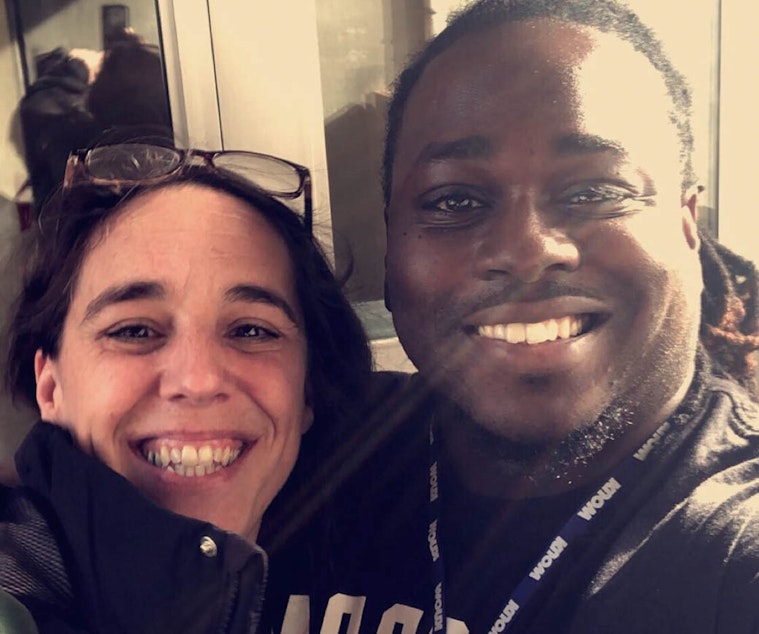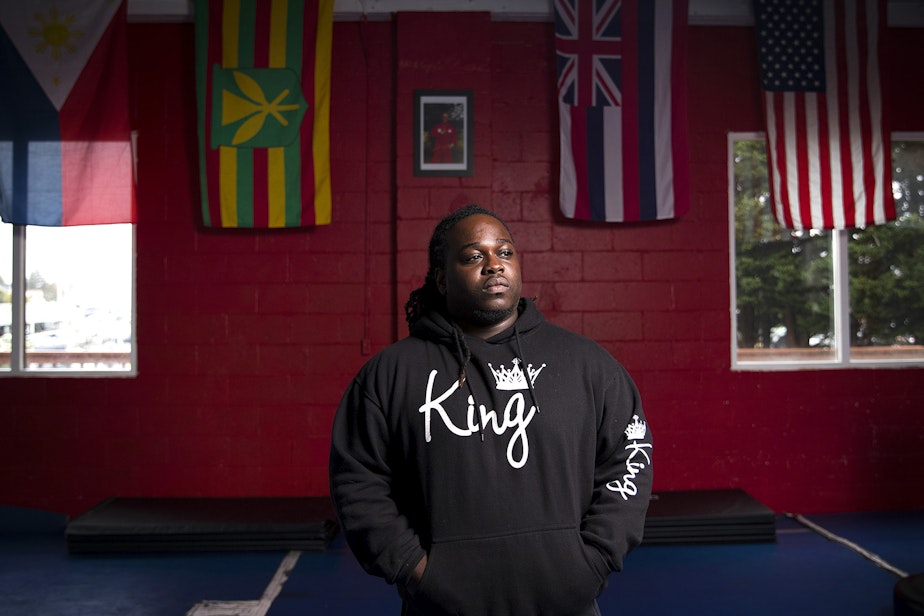The story behind our interviews with young men who carry guns in Seattle's southend

I first heard Will Jimerson speak at a King County Council meeting. He was describing his work, saying that he drove a teenage boy to high school every day to keep him from carrying a gun to school.
The young man didn’t carry a gun to be cool, or to hunt, or because he believed it was his right. He carried because he feared for his life, Jimerson said.
The story stuck with me.
[Read the essay from one of these interviews, My name is Millionaire Lavish. I’m 18 and carry a gun.]
This boy feels so unsafe going to school that he feels like he needs to carry a gun on the bus.
A gun. It’s so extreme. So potentially life changing. Life ending.
This is somebody’s reality right now.
Sponsored
I’m a reporter, but I’m also a mom. My heart hurt.
Recent dialogue about gun violence has centered around schools and student safety and protecting them from mass shootings. But what about young people who live alongside gun violence every day? Who believe they need to carry a weapon to ensure they’ll make it home at the end of the day?
I wanted to give these young men a voice on our air, but would they want to share their story with a white woman who had never lived their struggle? Would I even understand what they were telling me?
So I went to Will Jimerson Jr. and asked him to partner with me.

Will is a youth mentor and community advocate. Jimerson’s work with at risk and justice involved youth requires deep commitment and it’s round the clock.
Sponsored
Will was skeptical at first. His experience with the media hasn’t always been positive. He spent much of his early life in prison, and he was keenly aware of the how the white lens could reinforce stereotypes.
But I could tell he liked my idea and we devised a plan. He would conduct the interviews, and I would edit them. Together we could get this right.
Over two months, Will came to the KUOW studios and interviewed the young men you’ll hear in this series. I sat in the recording booth, adjusted the sound levels and grabbed the pizza.
Will’s rapport with these teens was obvious, and the reason they opened up. But he was also a skilled interviewer – gently prodding, offering his own experiences as a way to get them thinking, occasionally asking them to unpack a story they told. A natural.
So why couldn’t I conduct these interviews myself? It’s my job, after all, and I’ve been interviewing people from all walks of life for decades. But I wanted to try this experiment – see what would happen if someone like Will would help turn out a more accurate portrait of the fear and violence on Seattle streets.
Sponsored
When the interviews were over, I knew we had made the right call. That the ONLY reason these guys were talking candidly was because they trusted Will. As they spoke, I felt I had no business in that room, and I came to realize that I was most effective being the white lady with the platform, the white lady with the mic.
Will’s first interview was with Millionaire Lavish. Lavish was homeless and getting ready to graduate. He’d been a high school football star but didn’t get a scholarship. Now he was out on the streets carrying a gun for protection.
I learned at the end of the summer that Millionaire had been arrested and charged for involvement in a drive-by shooting. He was in the county jail, and when I listened back to his interview, I realized he had predicted this outcome. I need immediate help NOW, he said in his interview with Will.
“These places say we don’t have anything for you right now, come back in two weeks,” he said. “They don’t understand, in two weeks I could be dead or in jail.”
I went to visit him in King County jail. He didn’t remember me. It was actually a funny moment.
Sponsored
He told me that everything he said in his interview was true – and the reason he was behind bars. It was his first arrest; a conviction would likely change the course of his life forever.
Again, my heart ached.
Millionaire wrote to me recently from jail. He was grateful for the visit and wondered why some of the people who claimed to care about him had so far not made time to come. In the top margin he had written SHOUT OUT TO U! with a smiley face.


